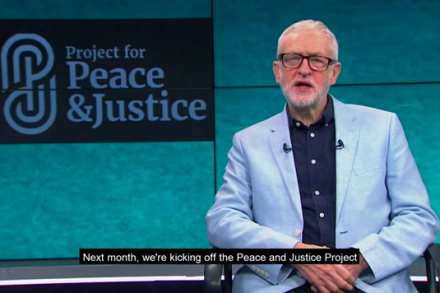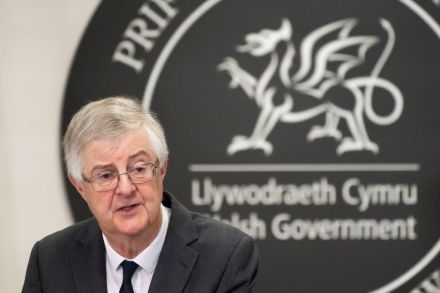Why I’m backing Corbyn’s ‘peace and justice’ project
He’s back. A year after losing a second general election in a row, Jeremy Corbyn has launched his ‘Project for Peace and Justice’ with a video on YouTube. He appears in a natty off-white jacket, with a tinge of blue, like a referee at the Henley Regatta. Speaking in a low, measured voice, as if reading a story to children, he recites an inventory of global problems which he proposes to solve. Behind him is the project’s slick new signage. The P and the J form an elongated oval, in smart white-striped livery, like the classic layout of the 1970s Scalextric track. This attractive piece of artwork must have cost




















